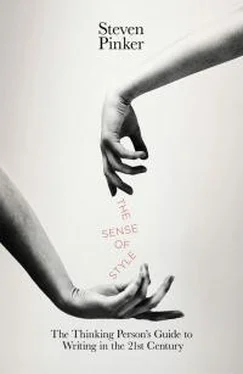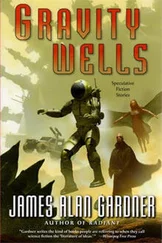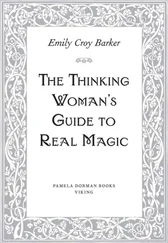(By the way, with 99.98 percent of the common verbs in English, the same verb form, past tense, is used to convey both past time and factual remoteness. But one verb has a special form to express remoteness: be, which distinguishes If I was from If I were . We’ll deal with it in the discussion of the subjunctive.)
What about the second half of the conditional, the then- clause, which calls for the auxiliaries would, could, should, or might ? It turns out they are just like the verbs in the if- clause: they are in the past tense, with a factual-remoteness meaning. The d’ s and the t at the ends of these auxiliaries are a giveaway: would is just the irregular past-tense form of will, could the past-tense form of can, should the past-tense form of shall, and might the past-tense form of may. We can see this in the contrast between open conditionals in the present tense and their remote conditionals in the past tense:
If you leave now, you
can
get there on time.
If you left now, you
could
get there on time.
If you leave now, you
will
get there on time.
If you left now, you
would
get there on time.
If you leave now, you
may
get there on time.
If you left now, you
might
get there on time.
If you leave now, you
shall
get there on time.
If you left now, you
should
get there on time.
So the rule for remote conditionals turns out to be simpler than it looks: the if- clause contains a verb which sets up a hypothetical world; the then- clause explores what will happen in that world, using a modal auxiliary. Both clauses use the past tense to express the meaning “factual remoteness.”
There is one more piece to the puzzle of how to write classy conditionals. Why do they so often contain the verb form had, as in If I hadn’t had my seat belt on, I’d be dead, which sounds better than If I didn’t have my seat belt on, I’d be dead ? The key is that had turns up when the if- clause refers to an event whose time of occurrence really is the past. Recall that the if- clause in a remote conditional demands the past tense but has nothing to do with past time. Now when a writer really does want to refer to a past-time event in a remote conditional, he needs the past tense of a past-tense form. The past-of-the-past is called the pluperfect, and it is formed with the auxiliary had, as in I had already eaten. So whenever the time of the make-believe world of the if- clause is prior to the time of writing, the clause needs to be in the pluperfect: If you had left earlier, you would have been on time.
Though the rules are perfectly logical, the conditions are hard to keep track of. Together with forgetting to use had in a past-time if- clause, writers sometimes overcompensate by using too many of them, as in If that hadn’t have happened, he would not be the musician he is today— a hypercorrection sometimes called the plupluperfect. One instance of have is enough: it should be If that hadn’t happened.
like, as, such as .Long ago, in the Mad Men era when cigarettes were advertised on radio and television, every brand had a slogan. “I’d walk a mile for a Camel.” “Lucky Strike means fine tobacco.” “Come to where the flavor is. Come to Marlboro Country.” And most infamously, “Winston tastes good, like a cigarette should.”
The infamy did not come from the fact that the company was using a catchy jingle to get people addicted to carcinogens. It came from the fact that the jingle allegedly contained a grammatical error. Like is a preposition, said the accusers, and may take only a noun phrase object, as in crazy like a fox or like a bat out of hell. It is not a conjunction (what I have been calling a coordinator) and so may not be followed by a clause. The New Yorker sneered at the error, Ogden Nash wrote a poem about it, Walter Cronkite refused to say it on the air, and Strunk and White declared it illiterate. The slogan, they agreed, should have been “Winston tastes good, as a cigarette should.” The advertising agency and the tobacco company were delighted by the unpaid publicity and were only too happy to confess to the error in the coda, “What do you want, good grammar or good taste?”
Like many usage controversies, the brouhaha over like a cigarette should is a product of grammatical ineptitude and historical ignorance. To start with, the fact that like is a preposition, which typically takes a noun phrase complement, does not mean that it may not take a clausal complement as well. As we saw in chapter 4, many prepositions, such as after and before , take either one, so the question of whether like is a conjunction is a red herring. Even if it is a preposition, it could very well precede a clause.
More important, the ad’s use of like with a clause was not a recent corruption. The combination has been in use for six hundred years throughout the English-speaking world, though with greater frequency in the nineteenth century and in the United States. It has been used in literary works by dozens of great writers (including Shakespeare, Dickens, Twain, Wells, and Faulkner) and has flown beneath the radar of the purists themselves, who have inadvertently used it in their own style guides. This does not show that purists are only human and sometimes make errors; it shows that the alleged error is not an error. The R. J. Reynolds Tobacco Company was confessing to the wrong crime; its slogan was perfectly grammatical. Writers are free to use either like or as , mindful only that as is a bit more formal, and that the Winston-tastes-good controversy became such a bloody shirt in the grammar wars that readers may mistakenly think the writer has made an error.
A related superstition, ruthlessly enforced by many copy editors, is that like may not be used to introduce examples, as in Many technical terms have become familiar to laypeople, like “cloning” and “DNA.” They would correct it to such as “cloning” and “DNA.” According to this guideline, like may be used only for resemblance to an exemplar, as in I’ll find someone like you and Poems are made by fools like me . Few writers consistently follow this bogus rule, including the mavens who insist on it (one of whom, for example, wrote, “Avoid clipped forms like bike, prof, doc ”). Such as is more formal than like , but both are legitimate.
possessive antecedents.Ready for another example of pointless purist dudgeon? Then consider this question from a 2002 College Board exam, which asked students to identify the grammatical error, if there was one, in the following sentence:
Toni Morrison’s genius enables her to create novels that arise from and express the injustices African Americans have endured.
The official answer was that the sentence did not contain an error. A high school teacher complained that it did, because the possessive phrase Toni Morrison’s cannot serve as the antecedent of the pronoun her . The College Board caved in to his pressure and retroactively gave credit to all the students who had identified her as incorrect. On cue, pundits moaned about declining standards. 14
But the rule against possessive (more accurately, genitive) antecedents is a figment of the purists’ misunderstanding. Far from being an established principle of grammar, the rule seems to have been conjured out of thin air by a usage maven in the 1960s and has been uncomprehendingly copied by others ever since. Genitive antecedents have been considered unexceptionable throughout the history of English, and may be found in Shakespeare, the King James Bible (“And Joseph’s master took him, and put him into the prison”), Dickens, and Thackeray, together with Strunk and White (“The writer’s colleagues … have greatly helped him in the preparation of his manuscript”) and one of the irate pundits himself (“It may be Bush’s utter lack of self-doubt that his detractors hate most about him”).
Читать дальше












